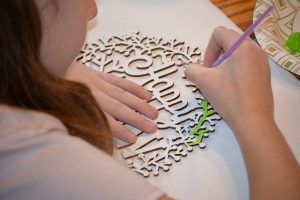 While you may or may not want your child to do homework over winter break, you definitely don’t want them to forget everything they learned or worse: forget how to learn. But don’t worry. These 5 tips can help keep your child focused over holiday break without overburdening him or her (or you) with work.
While you may or may not want your child to do homework over winter break, you definitely don’t want them to forget everything they learned or worse: forget how to learn. But don’t worry. These 5 tips can help keep your child focused over holiday break without overburdening him or her (or you) with work.
5 Ways to Prevent Holiday Break Brain
5. Do a Little Homework Each Day.
It’s tempting to leave all the homework for the end of holiday break even though every student knows it’s better to do it early. Well, if you can get your child to do even half an hour each day, then, both of you can reap the benefits such as…
- The child has to think about the material regularly instead of having a big break to forget about it.
- A half hour isn’t a long time, so there’s plenty of time for fun every single day of the break.
- Doing homework over a period of time instead of cramming it all into the night before school makes it less likely the student will miss something or make unnecessary mistakes.
- Since teachers usually assign less homework over holiday breaks, the student will probably finish before break is over, which means no worrying at the last minute. And the days without any homework end up being a reward for good study habits!
If you know your student has too little homework to stretch through the whole break, you could adapt this. Like doing a half hour of homework every other day or only on weekdays. Talk to your child and come up with a schedule that works for both of you.
4. Encourage Educational Computer Games.
Electronic games are popular with all age groups whether they’re played on computers, consoles, or phones. Games that combine fun with learning can keep brains active without making a child feel like his or her holiday break was wasted with homework.
Free Online Math Games
- to build foundational skills
- for middle school students
- for high school students
- free online logic puzzles
You might even offer the student a reward for choosing the educational game or a reading website – like an extra half hour of computer time if it’s spent on educational entertainment.
3. Learn on the Go.
Many car games involve playing with language and/or responding to what’s going on outside the car (or inside the plane). Even though they may not seem to be helping with the subjects students learn in school, they make the brain grow and connect, which can have a dramatic effect on critical thinking and problem solving.
To boost brain power on long trips, you can…
- Sing songs with or without the radio (preferably in the car, not on a plane)
- Tell each other stories
- Read signs or help with directions
- Translate signs into other languages
- Read signs backwards
- Identify colors
- Read clocks and estimate ETA
- Identify birds that fly by
Of course, if it’s a long trip, you’ll want to have multiple options so that no one (including you) gets too tired of a particular game.
2. Encourage Reading.
Reading is a great way to improve vocabulary and comprehension skills, and for many people, reading is also a wonderfully relaxing pastime. I love to read, and if your child does, too, then, do whatever you can to encourage that!
- Give books as gifts.
- Read books to the child.
- Discuss books you’ve both read.
- Let your child see you reading.
If you can get your child to enjoy reading, then you won’t have to twist any arms to keep his or her brain in shape during holiday break (just make sure his or her favorite books are available).
And, last but not least, my personal favorite…
1. Sneak Education into Family Activities.
The holidays are about spending time with family, so why not include family activities that stimulate the brain? After all, learning is good for all ages! And, like reading, the more kids see you involved in learning, the more they begin to value it.
Here are some ideas for fun, educational holiday activities that the whole family can enjoy:
- Play board games (like trivia games, word games, etc.)
- Play strategy games (like card games, chess, checkers, etc.)
- Craft together (the arts help the brain grow)
- Cook together (Simply baking cookies helps teach children how to measure and follow directions as well as giving them valuable life skills.)
- Go shopping (Let the kids estimate your bill for you to keep you on a budget, figure out which item is the best deal, or calculate the tax.)
- Wrap gifts (It’s practically a craft! Figuring out the amount of paper needed, cutting, folding, taping, tying ribbons, etc.)
- Sing songs together (around the piano, karaoke, etc.)
- Go to a holiday play or ballet such as A Christmas Carol or The Nutcracker
- Work on a project together like making a gift for someone (A great way to start teaching them to sew, knit, crochet, paint, woodwork, etc.)
For many people, shared games and activities are their best memories of the holidays. By making learning time a group activity instead of something your child does alone, you are building more of those memories for all of you.
Think back to your childhood. What was your favorite way to learn over the holidays? Did we cover it?
Author: Elizabeth F., Writer and Teacher at A Grade Ahead
